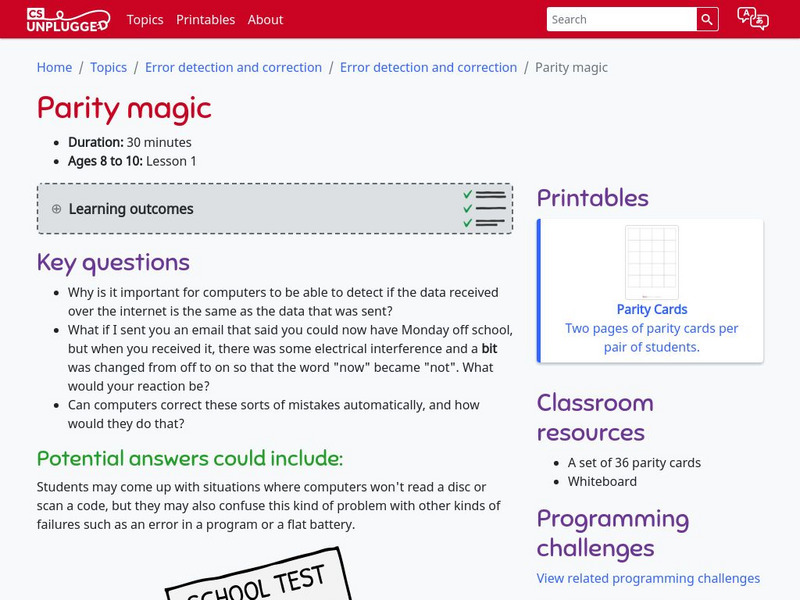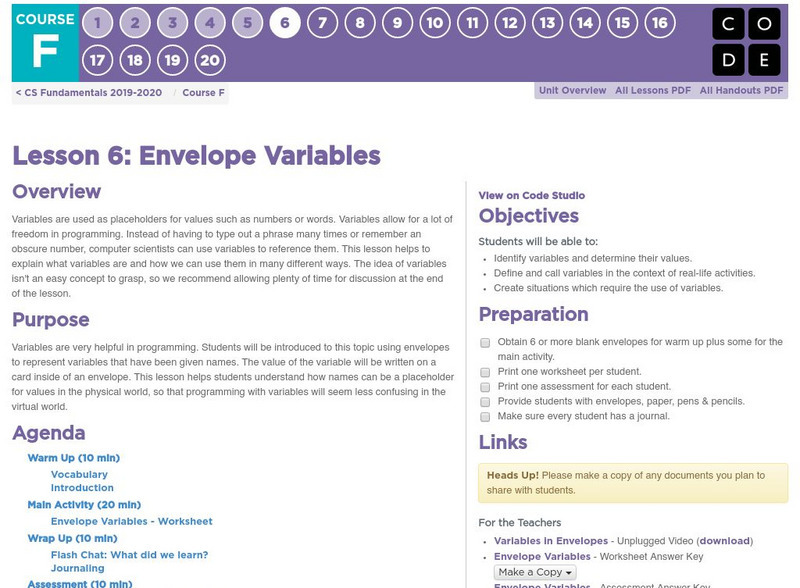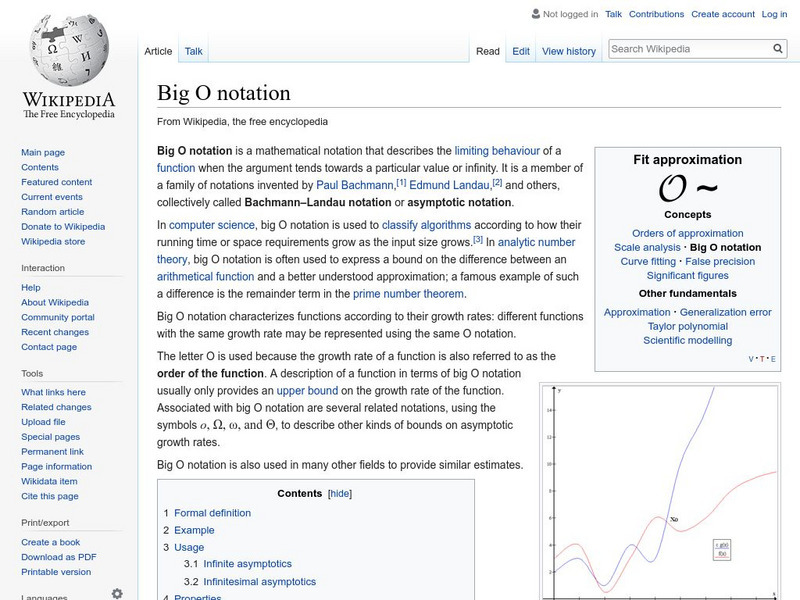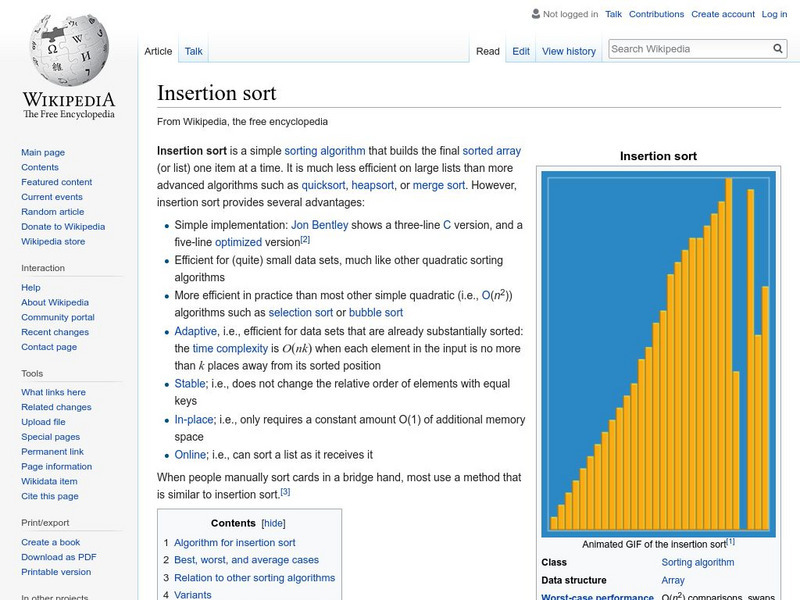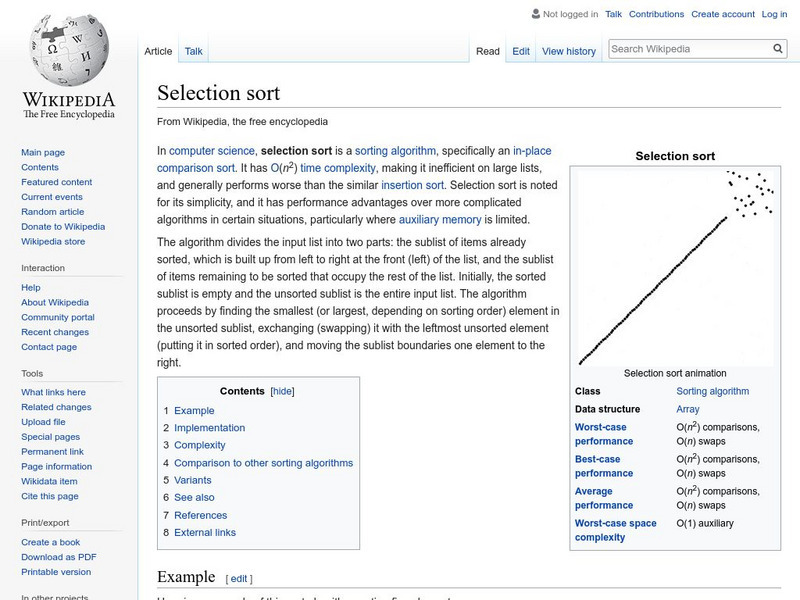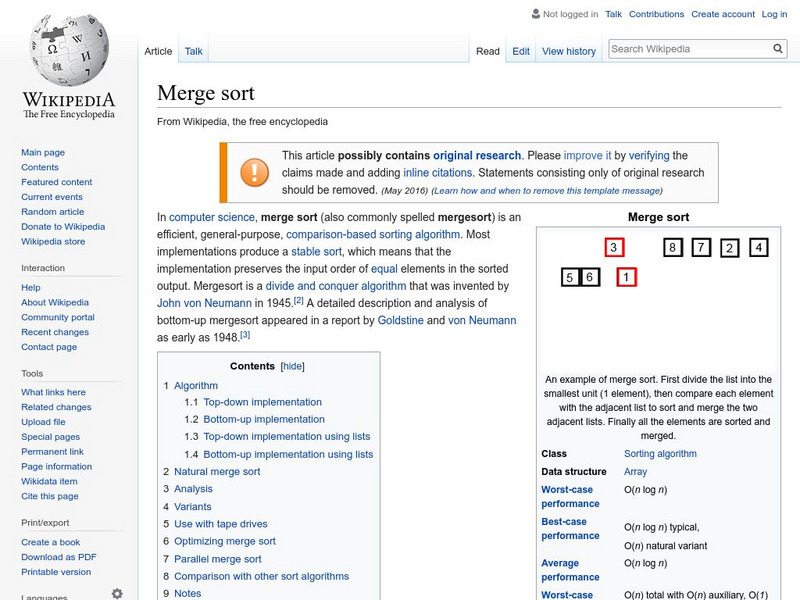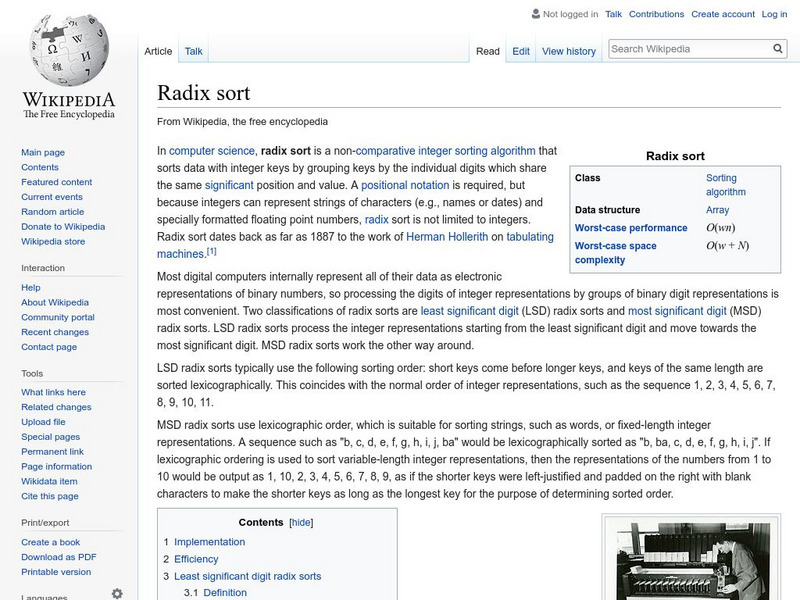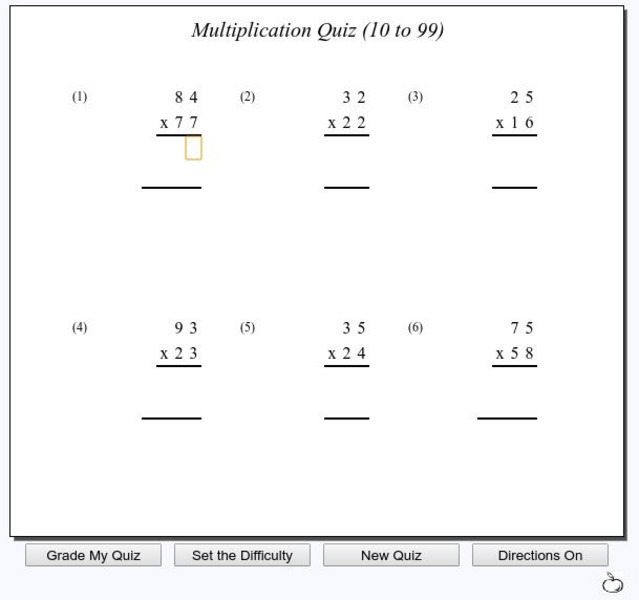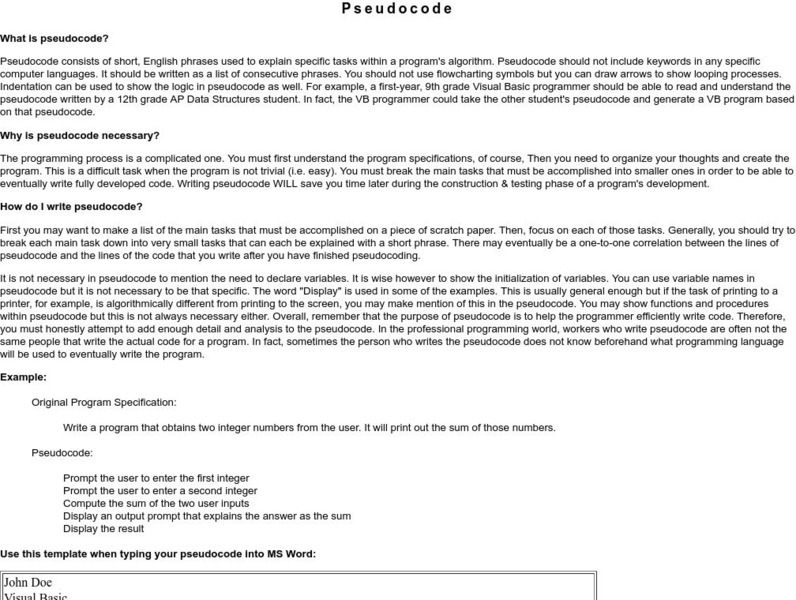George Mason University
Lesson Plans: Whole Number Algorithms Base Ten Blocks
Brief lesson plans that show how to use base ten blocks to do all four operations and a little bit of algebra.
University of Hawai'i
University of Hawaii: Bubble Sort
This page explains how a bubble sort works along with examples and source code.
University of Canterbury
Cs Unplugged: Parity Magic
This activity will look at how computers correct errors automatically.
Code.org
Code.org: Cs Fundamentals: Lesson 8: Changing Variables With Bee
This lesson will help illustrate how variables can make programs more powerful by allowing values to change while the code is running.
Code.org
Code.org: Cs Fundamentals: Lesson 7: Variables With Artist
n this lesson, students will explore the creation of repetitive designs using variables in the Artist environment. Students will learn how variables can be used to make code easier to write and easier to read, even when the values don't...
Code.org
Code.org: Cs Fundamentals: Lesson 6: Envelope Variables
This lesson helps to explain what variables are and how we can use them in many different ways.
Khan Academy
Khan Academy: Move Three Disks in Towers of Hanoi
Move three disks in Towers of Hanoi, following the steps learned.
Wikimedia
Wikipedia: Encryption
Wikipedia provides a basic definition of encryption, and distinguishes between the two encryption methods: symmetric and asymmetric key algorithms.
Calculator Soup
Calculator Soup: Long Multiplication Calculator
Multiplication of positive or negative whole numbers or decimal numbers as the multiplicand and multiplier to calculate the product using long multiplication. The solution shows the work for the Standard Algorithm.
Wikimedia
Wikipedia: Big O Notation
A Wikipedia description of the algorithm efficiency measurement known as Big-O.
Wikimedia
Wikipedia: Pseudocode
A Wikipedia description of the algorithm design language known as pseudocode.
Mr. Martini's Classroom
Mr. Martini's Classroom: Long Multiplication Quiz
Students are challenged to multiply two, three, and four-digit numbers using the standard multiplication algorithm. They can set the number of digits in the multipliers, choose to have their quiz graded, or select new problems.
Other
Minich: Pseudocode
A concise explanation of the algorithm design language known as pseudocode.
ClassFlow
Class Flow: Metric System
[Free Registration/Login Required] This is a supplemental metric system flipchart I used with my students to reinforce previous classroom discussions. It contains an algorithm we developed in class, as well as, several practice problems...
National Institute of Standards and Technology (NIST)
Dictionary of Algorithms and Data Structures: Linked List
A description of the linked list data structure.
National Institute of Standards and Technology (NIST)
Dictionary of Algorithms and Data Structures: Array
The definition of an array data structure with links to array subtopics.
National Institute of Standards and Technology (NIST)
Dictionary of Algorithms and Data Structures: Heap
The DADS definition of the heap abstract data type.
National Institute of Standards and Technology (NIST)
Dictionary of Algorithms and Data Structures: Stack
The DADS description of the stack data structure.
National Institute of Standards and Technology (NIST)
Dictionary of Algorithms and Data Structures: Binary Tree
The DADS description of the binary tree abstract data structure.
Other popular searches
- Numerical Algorithms
- Division Algorithm
- Multiplication Algorithms
- Addition With Algorithms
- Addition Algorithms
- Subtraction Algorithms
- Standard Algorithm
- Math With Algorithms
- Partial Products Algorithm
- Partial Sums Algorithm
- Adding Integers Algorithm
- Dividing Algorithm




